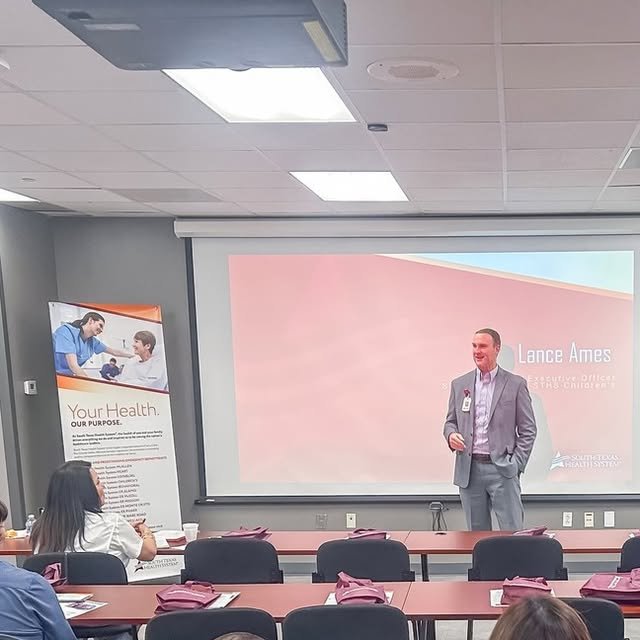Exploring Healthcare Career Paths: Preparing for the Future of Healthcare in the Rio Grande Valley
The healthcare industry is an intricate tapestry woven from various roles that extend far beyond the realms of physicians and nurses. As the demand for quality healthcare persists, it becomes increasingly vital to comprehend the multifaceted career paths available in this sector. This is especially true in regions such as the Rio Grande Valley, where population growth is contributing to an escalating need for healthcare professionals. This article serves as a comprehensive guide to understanding these career paths and the vital roles they play in delivering quality healthcare services.
The Importance of Diverse Health Professionals
Healthcare delivery is a collective effort that involves a variety of professionals. According to the U.S. Bureau of Labor Statistics, over 18 million people are employed in the healthcare sector, encompassing a wide range of professions. While doctors and nurses serve as the frontline heroes, numerous other roles—such as pharmacists, medical technicians, healthcare administrators, and social workers—are crucial for ensuring continuity and quality in patient care.
High Demand for Healthcare Professionals
The U.S. is facing a remarkable increase in healthcare needs, driven by an aging population and the evolving landscape of medical technology. In areas like the Rio Grande Valley, healthcare demands have skyrocketed, necessitating a robust workforce to meet these challenges. To cater to this influx, educational institutions and training programs are actively working to prepare individuals for various healthcare careers.
Career Opportunities in Healthcare
1. Physicians and Surgeons
Physicians and surgeons are often regarded as the backbone of healthcare. They diagnose and treat illnesses and injuries, playing a pivotal role in patient care. Specializations range from general practitioners to subspecialties like cardiology and oncology. The pathway to becoming a physician involves extensive education, including medical school and residency training.
2. Nursing
The nursing profession is one of the most versatile roles in healthcare. Nurses provide direct patient care and have specialties ranging from pediatrics to geriatrics. With the evolving landscape of healthcare, advanced practice nurses, such as nurse practitioners, are gaining recognition for their critical role in managing patient care.
3. Allied Health Professionals
Allied health professionals encompass a variety of roles such as medical laboratory technicians, radiologic technologists, and respiratory therapists. These individuals are essential for supporting patient care and often require specific training or certification programs. Institutions like the American Medical Technologists provide valuable resources for those interested in these paths.
4. Healthcare Administration
Healthcare administration is crucial for the effective functioning of healthcare facilities. Administrators manage operational aspects, ensuring services are delivered efficiently. A degree in health administration or public health can pave the way for a leadership position in this field.
5. Social Workers
Social workers within healthcare settings provide support to patients and their families, ensuring access to necessary services and navigating complex medical systems. They play an essential role in mental health care and community wellness initiatives.
Preparing for a Career in Healthcare
Education and Training
A solid educational foundation is paramount for anyone aspiring to enter the healthcare field. Various programs are available, from diploma courses to advanced degrees, depending on the career path. For those in the Rio Grande Valley, local institutions offer specialized programs that align with the regional healthcare needs.
Certifications and Continuing Education
Obtaining the proper certifications can also enhance career prospects. Many healthcare roles require specific licenses, which often necessitate continuing education to stay current with medical advancements. Organizations such as the National Healthcareer Association offer valuable resources for certification preparation.
Embracing the Future of Healthcare
As we look forward, the challenge remains to cultivate a diverse and skilled workforce ready to address the healthcare needs of the community. Efforts are underway in areas like the Rio Grande Valley to strengthen educational programs and community partnerships, ensuring that aspiring professionals are well-prepared for their roles.
The Role of Community Initiatives
Grassroots efforts greatly enhance the landscape of healthcare employment. Community organizations often work to raise awareness about various healthcare careers and provide mentorship opportunities for aspiring professionals. Collaborative events, workshops, and seminars can be invaluable for connecting students and job seekers with industry professionals.
Conclusion
As the landscape of healthcare continues to evolve, understanding the diverse career paths available is essential for anyone considering a role in this field. The collective effort of various healthcare professionals is critical to delivering quality services and improving patient outcomes. Areas like the Rio Grande Valley are at the forefront of this change, demonstrating a commitment to preparing the next generation of healthcare workers.
For those interested in exploring opportunities in healthcare, leveraging resources from educational institutions and professional organizations can provide insight and guidance on making informed career decisions.
For further information on healthcare professions, consider visiting HealthCareers.org for valuable insights and career exploration tools.


